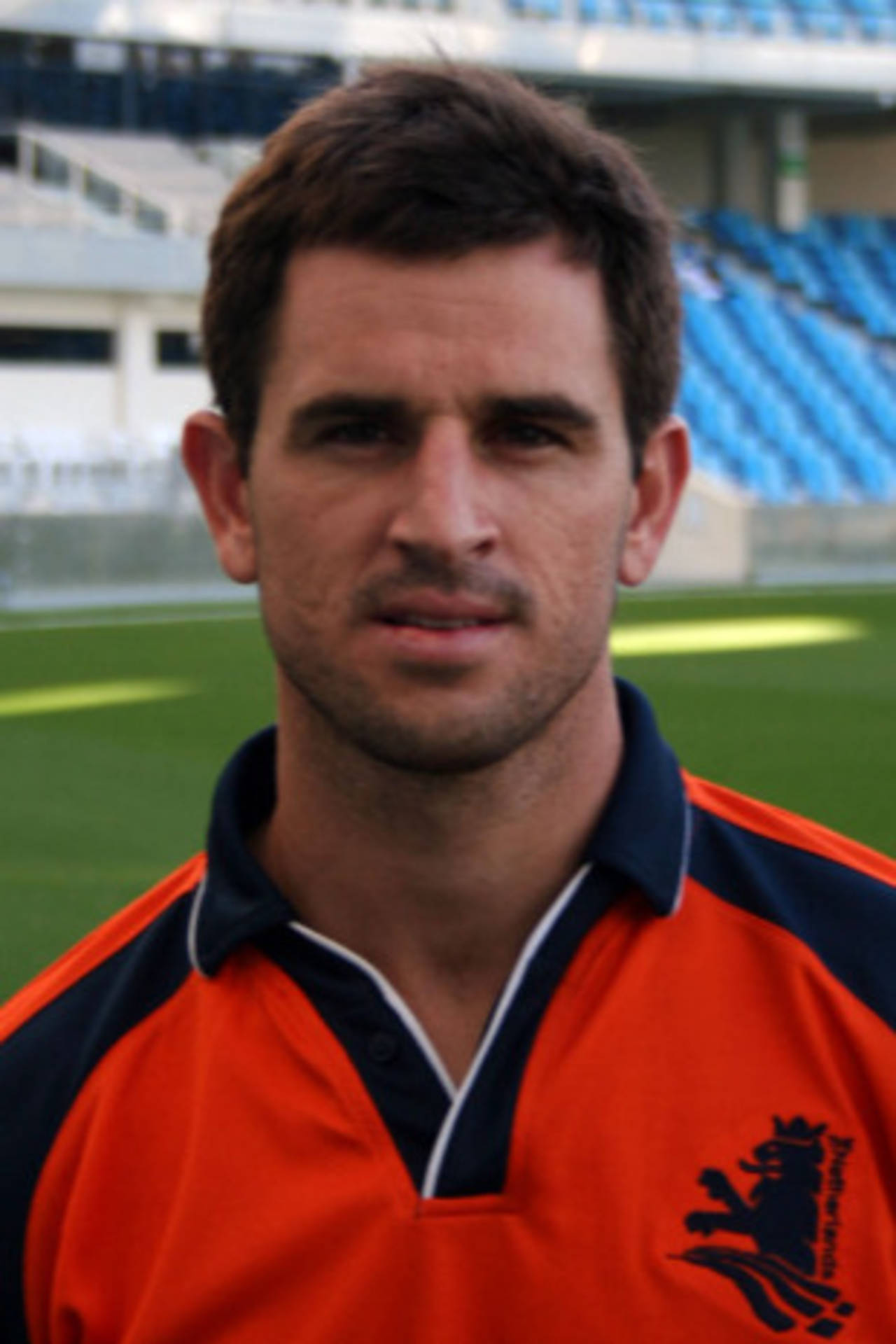The Dutch go back to school
A polite request arrived from the ICC a couple of days ago: would I like to join Ryan ten Doeschate and Atse Buurman, the Netherlands’ players, on a visit to one of the government-run schools as part of a drive to encourage education through reading
Nagraj Gollapudi
25-Feb-2013

Nagraj Gollapudi discovered Ryan ten Doeschate is an avid reader on a trip to a classroom in an Indian government school • Koninklijke Nederlandse Cricket Bond
A polite request arrived from the ICC a couple of days ago: would I like to join Ryan ten Doeschate and Atse Buurman, the Netherlands’ players, on a visit to one of the government-run schools as part of a drive to encourage education through reading? My first thought was, forget it. But I chewed on it for about an hour and then randomly gave my nod. I felt it was rare to meet a player in a private space and it could be worth it.
A few hours later I found my way into the school in South Delhi. “Some cricketers have come ... but sadly not Indian,” I heard a few disappointed murmurs from the teenage kids standing in the courtyard. But moments later I was in a small classroom, barely the size of a double room in a hotel, but which now held 25 kids and five teachers surrounding the Dutchmen. ten Doeschate and Buurman, both dressed casually in the same colour denims and T-shirt, were completely open and relaxed in a packed environment. Both tried hard to understand the questions and came up with honest answers.
Of course 10-year-olds don’t ask about life. “Can you a hit a six?” a toddler asked ten Doeschate. He could only laugh back. Buurman was asked his favourite stroke. But Buurman, the reserve wicket-keeper, was curious to know about something specific. Buurman had dyslexia as a child. Even now he stresses on every word and makes sure he is right about what he says. “I had remedial teaching which helped me. But I was curious about how dyslexic kids here deal with it. I tried asking the teachers how the dyslexic students in the school deal with the issue, but never got a clear answer.”
Still the visit was an eye-opener. Schooling back in Holland, according to Buurmen, is very different. “Dutch kids are pretty much in their world, very much focussed on what they are doing. In general from what I saw these Indian kids really enjoy different things in life than Dutch kids. It is being together, enjoying together. For a Dutch kid, it is more about “me. Am I enjoying?” he says.
Observing the struggles of Indian life, it immediately dawns on a Westerner how lucky and smooth his life is. “A lot of things you take for granted living in Holland like education and facilities that we have available,” Buurmen says. “When you visit such places you realise it is not always the case and then realise how lucky we are.”
ten Doeschate has visited India a few times with various Essex teams in the past. And he feels he got an insight about how the poor live in India through the bestseller Shantaram twice. He says the book, written by Australian Gregory David Roberts, gives a “rough and true description of what India is, how busy everything is, how tough things can be, how informal everything is.” The book is an autobiography of Roberts, who escaped from an Australian jail and claims to have found redemption in the slums of Dharavi in Mumbai.
ten Doeschate, a journey man himself, has been away from home in Chelmsford for four months now, is an avid book reader and counts Night Train to Lisbon, a psychological drama, as one of his favourite books. It is interesting to always see the other side of an athlete. As a journalist, I am normally interested in getting a better understanding of the player, and the best way is to talk about something outside cricket. Players are quite private most times, but there are exceptions like ten Doeschate.
Perhaps reading has helped him get a finer understand of people and how to relate to them. Asked by one of the teachers to draw something for the kids, he readily took a sketch pen and drew a picture of him as a stick man and few other kids as stick men standing around him along with a book. The context of the event was not lost on him.
I ask him what the one image is that he will take back with him from the visit. “There was this sight of a little boy who had just learned how to read. He was asked by one of the teachers to read. He proceeded to read by running through the page finger by finger, pointing at every word. He was such a tiny kid, but I could help smile. It was memorable.”
The players visited a reading room at the MCD school in Govindpuri, Delhi as part of the ICC’s partnership with Room to Read. This partnership began with a pledge from ICC to support the development of similar reading rooms in all three host countries and has been given tremendous momentum through the launch of the ‘Boundaries for Books’ campaign by Reliance Life Insurance which donates Rs 25,000 for every six hit during the ICC CWC. Members of the public can find out more and donate themselves at www.roomtoread.org/worldcup
Nagraj Gollapudi is an assistant editor at ESPNcricinfo